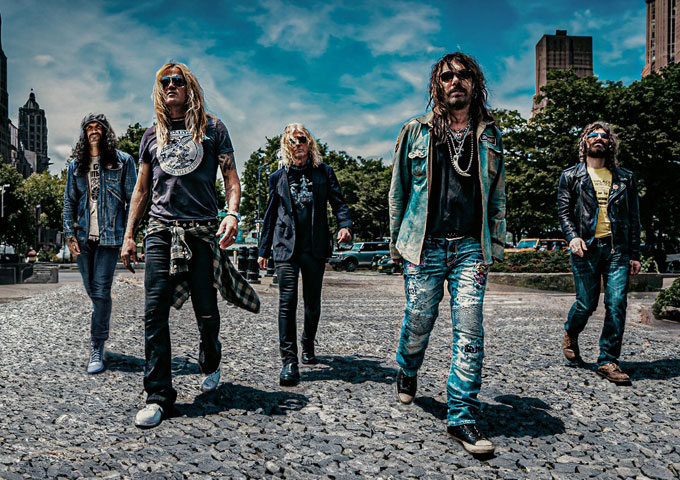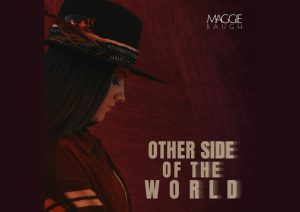
The Dead Daisies: “Love That’ll Never Be” – A Ballad of Regret and Rock ‘n’ Roll Resilience
For over a decade, The Dead Daisies have been a force of nature, a collective of rock royalty dedicated to keeping the spirit of 70s rock alive. From their inception, inspired by the stark imagery of “pushing up daisies” juxtaposed with the vibrant celebration of Dia de los Muertos, the band has embodied a potent blend of raw energy and timeless musicality. Their journey, marked by a revolving door of exceptional talent – including luminaries like David Lowy, Doug Aldrich, John Corabi, Michael Devin, and countless others – has solidified their place as modern rock icons.
Sharing stages with giants like Kiss, Guns N’ Roses, and the Scorpions, headlining tours across continents, and even rocking for hundreds of thousands at massive festivals like Download, Wacken, and Graspop, The Dead Daisies have consistently proven that rock is far from dead. They’ve explored diverse musical landscapes, from their self-titled debut to the recent “Light ‘Em Up,” demonstrating a commitment to evolution while retaining their signature sound. Now, as they embark on a new chapter with “Light ‘Em Up” and the release of their poignant single “Love That’ll Never Be,” they demonstrate their mastery of both high-octane rock anthems and emotionally resonant ballads, further cementing their legacy.
“Love That’ll Never Be,” born from a collaboration between John Corabi and Marti Frederiksen, initially intended for a solo project, found its rightful home within The Dead Daisies’ repertoire. Corabi describes the track as a “bluesy 70’s rock ballad reminiscent of The Allman Brothers,” a fitting characterization of its soulful undercurrent and classic rock sensibilities. This influence is evident in the song’s structure and the interplay between the instruments, creating a warm and familiar atmosphere. Doug Aldrich’s signature guitar work, however, adds a layer of grit and power, injecting a raw edge that elevates the song beyond a simple ballad and firmly planting it within The Dead Daisies’ sonic landscape. His guitar solo, while melodic, possesses a certain bite, mirroring the emotional tension of the lyrics.
The song’s lyrical narrative explores the universal theme of regret, a poignant reflection on lost love and the agonizing realization that what we often seek is what we’ve already had. It’s a story of hindsight, of recognizing the value of something only after it’s gone. The protagonist awakens to the stark reality of her solitude, haunted by memories of a love she took for granted. The opening imagery paints a picture of profound isolation and remorse, the “wrong side of the bed” a metaphor for the emotional turmoil she faces. This physical discomfort mirrors her inner unrest. The act of reaching for the phone, hoping for a connection that never comes, underscores the depth of her longing and the gnawing emptiness she feels. It’s a small, everyday action that carries immense emotional weight.
The chorus serves as a stark reminder of the permanence of some goodbyes. While time is often touted as a healer, a balm for all wounds, it proves powerless against the ache of lost love. The protagonist’s reliance on memories becomes a form of self-inflicted torment, a constant reminder of what she’s lost and the opportunities she squandered. Her cries, both at night and as a desperate plea for a “remedy,” encapsulate the raw, visceral pain of a love that has slipped through her fingers. These cries are not just expressions of sadness; they are a lament for what could have been.
The second verse delves deeper into the protagonist’s regret, questioning whether her actions, her words, her neglect, drove her lover away. The realization that she “took his love for granted” and “left his heart abandoned” fuels her despair and intensifies her self-blame. The poignant line about giving up everything to return to his arms underscores the magnitude of her loss and the desperate longing for a second chance, a chance to rewrite the past. This desire to turn back the clock is a common human experience, particularly in the face of heartbreak.
The bridge reinforces the theme of time’s inability to heal all wounds. The repetition of “Time they say, heals everything” followed by the defiant “But not this time” emphasizes the unique and enduring nature of her pain. This is not just any heartbreak; it’s a wound that refuses to close. The final verses reiterate the protagonist’s isolation and her desperate clinging to memories, culminating in the heartbreaking acknowledgment of a “love that’ll never be.” This finality is crushing, a stark acceptance of the irreversible nature of her loss. The song doesn’t offer easy answers or comforting platitudes; it simply presents the raw, unfiltered reality of regret.
“Love That’ll Never Be” is a testament to The Dead Daisies’ versatility. It showcases their ability to craft not only powerful rock anthems that ignite arenas but also emotionally resonant ballads that connect with listeners on a deeper, more personal level. The song’s timeless themes of regret and lost love, combined with its classic rock instrumentation, soulful vocals, and Doug Aldrich’s evocative guitar work, make it a standout track in The Dead Daisies’ impressive repertoire. As they continue their journey, pushing the boundaries of rock and roll while staying true to its roots, The Dead Daisies prove time and again that rock is indeed alive and well, and capable of capturing the full spectrum of human emotion, from the exhilarating highs to the heartbreaking lows. They are not just a band; they are a testament to the enduring power of rock music.
OFFICIAL LINKS: FACEBOOK – X – SPOTIFY – INSTAGRAM – YOUTUBE


